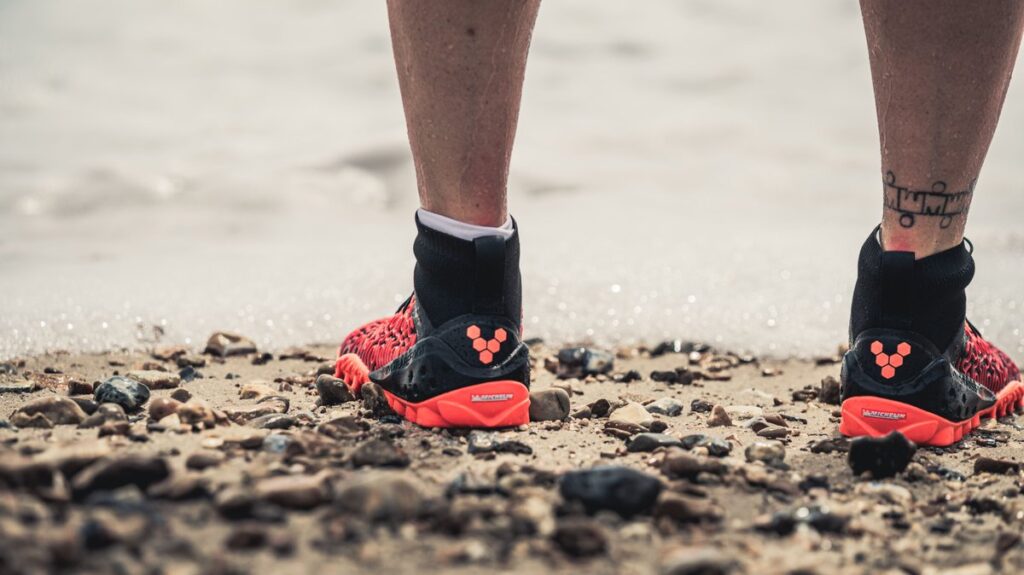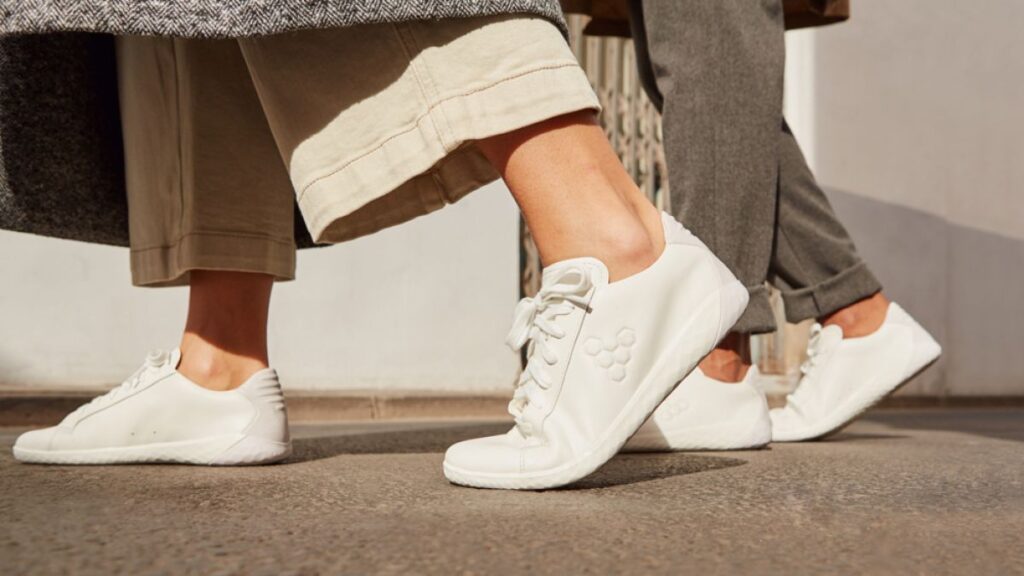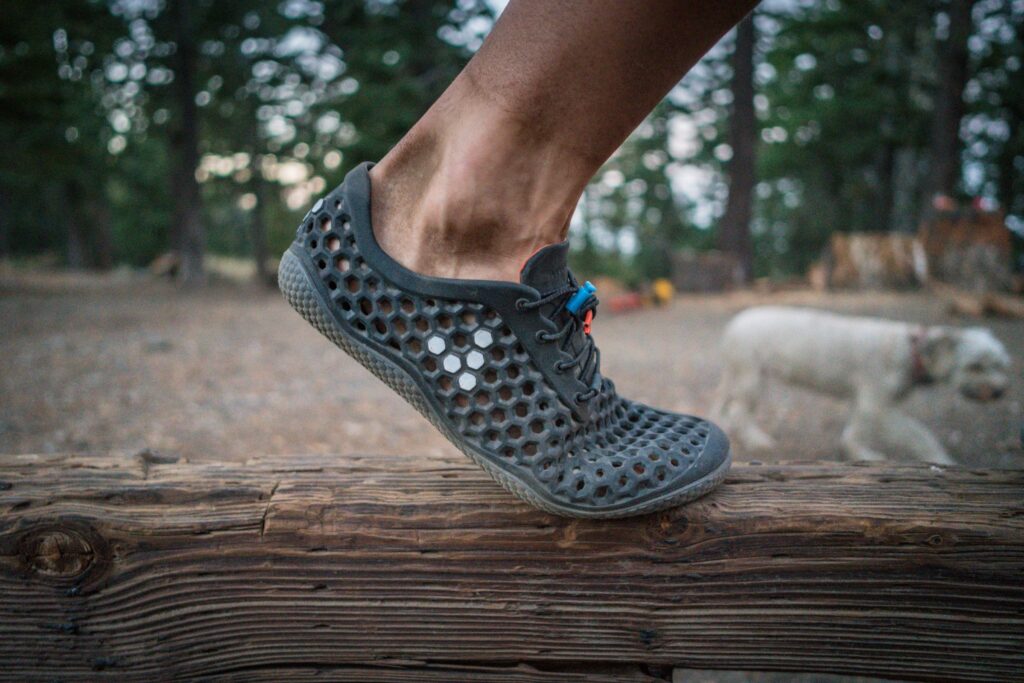Did you know that 90% of the 25 billion shoes produced every year end up in junkyards? These landfill shoes take 30-40 years to decompose. What’s more, the horrible chemicals found inside the glues, rubbers, and even leather materials used to make our shoes are also released into the environment.
Usually, a year after purchase, shoes become worn out. It is for this reason that Vivobarefoot is planning to unveil a re-commerce site to repair and resale these landfill shoes. Instead of being taken to a landfill, it gets singled out and regenerated for another use. In a determination to reduce the amount of junk pile shoes, Vivobarefoot will be the first shoe brand to make such a move to maintain the landfill Vivobarefoot shoes in circulation.

The ReVivo initiative is calling upon other shoe industries to take control of the situation and stop making shoes without a destruction solution. To be 100% ecological, the shoe in its unpolluted form should be effortlessly recycled. Supposing to produce footwear that is genuinely bearable and easy to recycle is mostly impractical today. Recycling has plenty of benefits to look for, for instance:
Recycling reduces energy consumption. Recycling plays a role in the green energy dispute by decreasing the amount of energy essential in manufacturing various products. This decreases greenhouse gas generated by the industrial processes and lowers global energy intake.
Recycling decreases pollution. By recycling, you reduce industrial waste. Instead of the coke shoe soles winding up in the landfills, they are taken back, broken down, and reused by the manufacturer.
Recycling is considered environment friendly. Recycling impacts the deforestation issue on Earth. Recycled paper products mean fewer trees that need to be chopped down and processed.
Recycling slows down the rate of resource exhaustion. Eventually, the planet will run out of raw materials. By recycling, you control the need to mine and use those raw materials to make fresh products. Instead, your reprocessed material is used.
Recycling combats global warming. Burning loads of waste leads to poisonous emissions, which hastens the rate at which our planet is warming up. By recycling, less material becomes discarded that is supposed to be burned. Instead, it is used in ways that are much more valuable to the environment.
Recycling decreases landfill waste. Recycling second-hand products mean less waste into landfills, which is a good thing since landfills slowly damage the natural environment.
The ReVivo plan will be launched on 20th July partially as an ambition to reduce the brand shoes to the junkyard shoe ratio.
This initiative has connected Vivobarefoot and the qualified artisans of The Boot Repair Company in working together with the goal of rebranding footwear and making it one of most constructive productions globally.
Vivobarefoot stated during the launch that it is their goal to agree to take shoes straight from the consumers before refurbishing and remitting them after a 100-day trial because only returned shoes shall be revamped. “But expect the offering to expand in the future, allowing customers to trade in old, tired pairs of Vivobarefoot shoes that can be brought back to life,” said Clark. “A new full repair service is in the future too.”
“No doubt, the elephant in the sustainable shoe room is end-of-life and the fact that nearly all shoes end up in landfill or, at best, get ground down into flooring material. The shoe industry makes shoes out of complicated different materials bonded together with a lot of petro-chemicals that will ultimately sit in a landfill for a lot longer than the lives of the wearers!” stated Galahad Clark, Vivobarefoot chief executive.
Sadly, sustainability is extensively used for marketing, and generally, no brand is gaining anything near to a sustainable product. The focus should be on continuous upgrading for the customer, for returns, and the environment.
“At Vivobarefoot we’re on a journey to make the most sustainable shoes in the world: regenerative for people and the planet. The launch of ReVivo is a super exciting step in that journey and one of many initiatives we are taking to make sure none of our shoes ever end up slowly decaying in landfills!”, Galahad Clark added.

For the returned shoes to be graded, they must undertake a complete error examination as a measure of the mission.
Grade 1 – ‘Faultless’ Vivobarefoot’s best-serviced footwear;
Grade 2 – Repaired but in good condition and finally,
Grade 3 – Replaced sole and repairs but in decent condition.
Afterward, using Micro-Fresh technology, they will undergo a thorough steam wash and be disinfected all-round. Micro-Fresh expertise kills every kind of infection, causing germs right before the restoration procedure starts.
The mending process comprises of; fastening and over-sewing raptured seams to form a sturdy repair, covering torn or fragile parts, reattaching loose badges, and soles, besides substituting wrecked loopholes and shoelace hooks.
The process will include a replacement of almost all the parts of the shoe, for instance, wrecked tie-ups and insoles will have new alternatives while the weary insoles recycled to renovate other shoes. Even the wrapping will be replaced. Out with old, in with the new!
After the whole rebirth process is through, the freshly labeled footwear will be sold at the ReVivo trade website that will be launched soon. Customers will be able to purchase the ‘new’ shoes via the website.
For Vivobarefoot, this is only the beginning in making the most durable shoes world-wide because it is presently preparing chemical reprocessing solutions, including other prototypes like shoes that are 3D branded.
The brand has by now left a mark in the market after launching in the 2017 Ultra Bloom model. This model is the leading algae-based shoe. Algae is a replacement for EVA, foam material used to make many sporty shoes. Remarkably, a single pair eliminates an approximate of 25 balloons of CO2 from the air.
Surprisingly, the brand made the Primus Bio in 2019, which is purely made from the remains of corn, “susterra propanediol.” The grain is primed, and the cellulose inside the grain kernels is divided and refined, causing a flexible, durable material that’s created wholly from a plant origin. Because Vivobarefoot is on a mission to make the world a better place, each pair utilizes 42% a reduced amount of energy than petroleum by-products and produces 56% a lesser amount of greenhouse gas secretions. Similarly, they have shoes made of 50% reprocessed plastic from plastic bottles.
Now the hale and hearty shoes in the world can forge ahead through the ReVivo platform.

